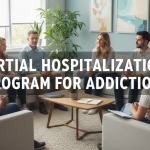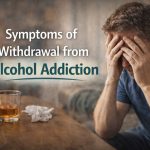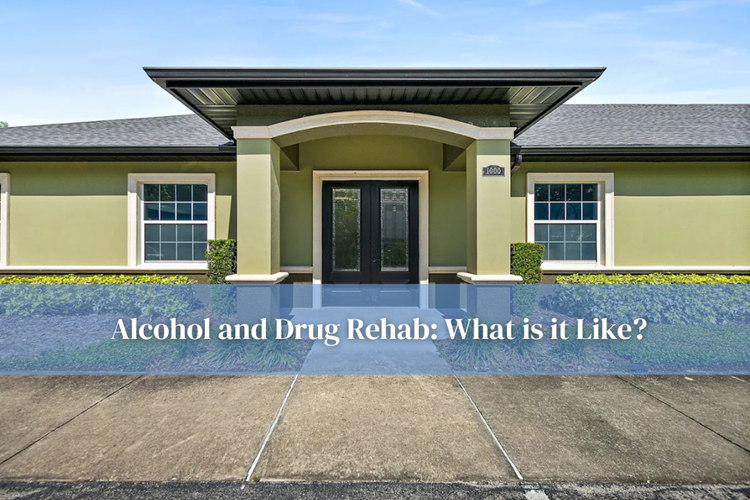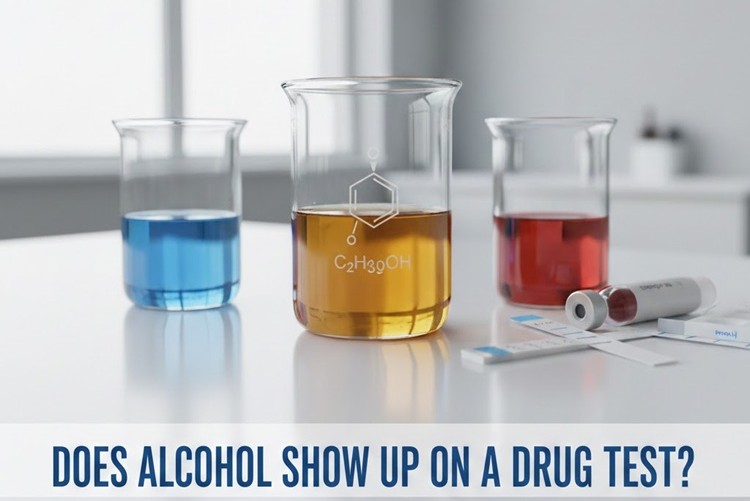Humans worldwide consume alcohol at the highest frequency among all substances. People use alcohol socially and reasonably, but persistent heavy alcohol abuse leads to dependence. The body experiences shock when dependent individuals stop drinking alcohol, since this condition is known as alcohol withdrawal.
The symptoms of alcohol withdrawal span from minor discomfort to conditions that might become fatal. Medical supervision under proper treatment enables patients to recover from their alcohol-related conditions. People who want a healthier future must first learn about recovery processes.
What is Alcohol Withdrawal?
Abrupt alcohol reduction in regular users will produce physical symptoms and mental distress, which define alcohol withdrawal. Use of alcohol triggers depressive effects on the brain’s functioning system. Your body adapts to alcohol through time and subsequently increases its efforts to maintain equilibrium. The body faces difficulties during adaptation to alcohol deprivation, thus leading to withdrawal symptoms.
Different alcohol withdrawal symptom intensities stem from the amount a patient consumes regularly alongside their health condition and history of alcohol detoxification efforts.
People who experience withdrawal symptoms typically report a hangover effect, while those affected severely will need urgent medical intervention for delirium tremens (DTs).
Symptoms and Causes
Common Alcohol Withdrawal Symptoms
Alcohol withdrawal starts approximately between 6 and 12 hours after drinking stops before reaching its intense stage which takes between 24 to 72 hours then continuing through several days. Several psychological withdrawal symptoms have a duration that exceeds weeks. People who withdraw from alcohol will experience the following symptoms:
- Anxiety and nervousness
- Sweating and clammy skin
- Nausea and vomiting
- Headache
- Insomnia
- Rapid heart rate
- Shaking or tremors
- Irritability
- Mood swings
- Hallucinations (visual, auditory, or tactile)
- Seizures (in severe cases)
Recognizing these signs of alcohol withdrawal early is critical to preventing complications.
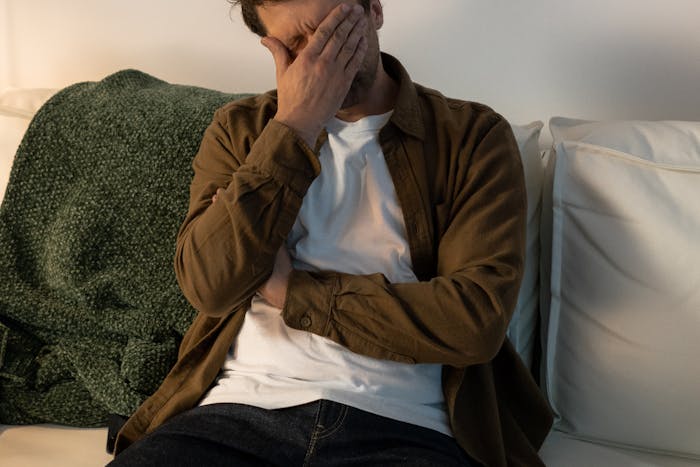
What Causes Alcohol Withdrawal?
The primary cause of alcohol withdrawal emerges after individuals who are alcohol-dependent stop using alcohol. The brain of an individual develops tolerance to alcohol depression by boosting levels of excitatory neurotransmitters. The nervous system becomes hyperactivated whenever the body flushes out alcohol because its neurotransmitters elevate to persistently high levels.
Symptoms that may be both bothersome and risky occur during alcohol withdrawal syndrome because of chemical equilibrium breakdown between the nervous and brain systems.
What are the Risk Factors for Alcohol Withdrawal?
People who stop drinking alcohol may not develop serious withdrawal symptoms even though particular characteristics make such symptoms more likely to occur. Detoxification should be conducted using the most secure method when considering these risk factors.
Major Risk Factors:
- Heavy and Prolonged Drinking: Having larger amounts of alcohol during regular consumption periods across prolonged durations increases a person’s chances of experiencing withdrawal symptoms.
- Previous Withdrawal Episodes: Past withdrawal experiences create additional risk of severe withdrawal symptoms such as seizures and delirium tremens.
- Co-occurring Mental Health Conditions: Anxiety, depression, and other mental health issues can worsen withdrawal symptoms.
- Poor Nutrition and Overall Health: The severity of withdrawal symptoms, along with the recovery duration is worsened because of malnutrition combined with poor physical health.
- Use of Other Substances: Alcohol consumption combined with benzodiazepine or opioid medications raises the probability of encountering severe side effects when patients stop using these substances.
How Long Does Alcohol Withdrawal Last?
People frequently ask this question to Orlando Treatment Solutions because of its frequent occurrence. Each case of alcohol withdrawal unfolds differently, however, the usual progression lasts for this timespan:
- After a person stops drinking symptoms of anxiety along with sweating, nausea and insomnia, will emerge between 6–12 hours from their final drink.
- The symptoms reach their peak during this period between 24 and 72 hours and seizures along with delirium tremens become most likely to occur.
The majority of withdrawal symptoms will start improving by day 4–7 , although mental side effects, including anxiety and disturbed sleep patterns, tend to stay for a more extended period.
The symptoms that manifest during Post-Acute Withdrawal Syndrome (PAWS) can linger for extended periods, as long as months or weeks, which requires continuous supportive care.
Treatment for Alcohol Withdrawal
Treating alcohol withdrawal safely often requires professional medical supervision. Attempting to detox at home without guidance can be dangerous and, in severe cases, life-threatening. At Orlando Treatment Solutions, we offer comprehensive addiction treatment programs designed to manage withdrawal symptoms and support long-term recovery.
Medical Detoxification
Treatment begins with medical detox services. The team of experienced professionals at our center provides continuous monitoring of clients to help manage withdrawal symptoms and keep patients safe. Alcohol withdrawal medications are provided by medical staff to manage symptoms and avoid adverse complications from occurring.
The main group of medications used during the alcohol withdrawal period consists of
- Patients receive benzodiazepines prescribed as diazepam (Valium) or lorazepam (Ativan) to manage anxiety symptoms and stop seizures while stabilizing their vital bodily functions.
- Anticonvulsants: To manage seizure risks.
- Beta-blockers act as part of the treatment to regulate heart rate levels as well as manage blood pressure values.
- Thiamine (Vitamin B1) supplements are crucial to prevent the disorder Wernicke-Korsakoff syndrome during alcohol withdrawal treatment.
Supportive Care
Medical supportive measures hold equal importance to drug treatments. Supportive care involves hydration together with nutritional support as well as counseling which helps patients deal with emotional challenges stemming from withdrawal.
Behavioral Therapy
A person who completes detox treatment requires ongoing therapy to handle the psychological components of addiction. Medical experts use group counseling together with individual therapy and cognitive-behavioral therapy (CBT) to stop individuals from relapsing.
Intensive Outpatient Programs (IOP)
Our Melbourne Intensive Outpatient Program provides structured therapy with support services that let clients continue their regular daily duties. Continued care post-detoxification depends heavily on participation in the essential program known as IOP.
Seek Help Today
A person must never tackle alcohol withdrawal independently. Without medical care, the symptoms from alcohol withdrawal develop rapidly into conditions that can threaten life. As a treatment center at Orlando Treatment Solutions we provide complete support to help patients through their addiction treatment journey.

A supportive center operates under our caring team which delivers individualized care to patients. Our organization maintains all essential recovery solutions, including supervised detoxification and therapy and outpatient support, which we will use to help you achieve recovery. Contact us right now at (321) 415-3213 if you notice alcohol withdrawal symptoms in yourself or someone you care for.











